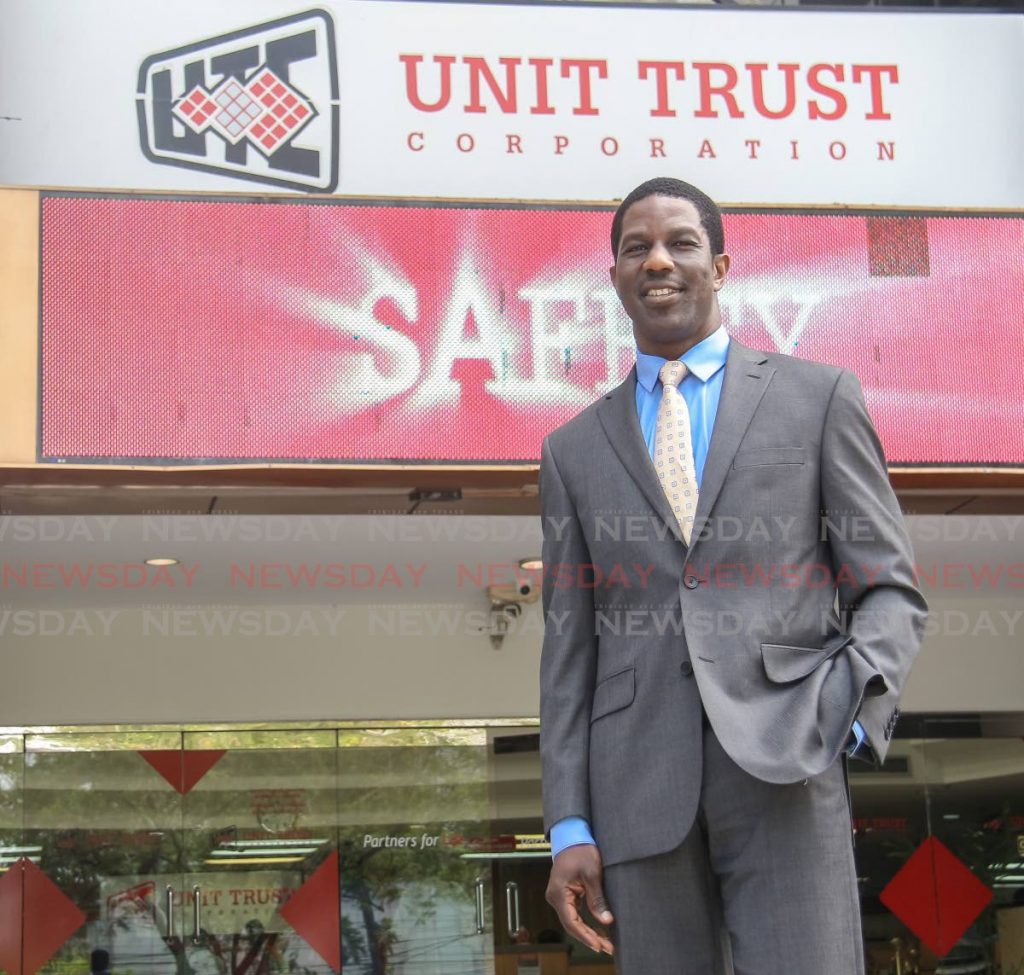Don't be alarmed by market volatility

Sitting in his office on the tenth floor of the Unit Trust Corporation’s (UTC) head office on Independence Square, executive director Nigel Edwards recalled a conversation he had while working at an investment bank in London in the 1990s.
“I was talking to one of the technical analysts,” he told Business Day. “These guys eat, sleep and breathe charts. It was during a liquidity crisis in the mid-1990s and I asked him if he was concerned about the returns he was seeing and if he’d recommend getting out of the market.”
The man, Edwards remembered, responded by pulling up a chart of market data spanning decades. It was pretty much just a straight line – an upward trajectory. The man then pulled up a chart spanning 20 years, then another over five years. The result was fundamentally the same. The line denoting market performance kept going up. Sure, there were slight deviations and dips signifying temporary dips and stock market crashes, but overall, it just went up.
“His point was if you remain invested in the market over a long period of time you’re going to get periods dips – 1987 when the international markets had one of their biggest crashes; 2008 and the Great Recession, and now the first quarter of 2020 (the great lockdown). But if you remain in the market over a (long) period of time your investment is going to pay off in the end. And that’s the message. Stay in the market.”
It’s what he and his team at the UTC want to underscore for its 600,000 plus unitholders. As the world adapts to the “new normal” brought on by the covid19 pandemic – a public health crisis that has disrupted global supply chains and consumer demand – economic uncertainty has investors, large and small, on edge. But, Edwards emphasised, the UTC team is managing its unitholders’ funds responsibly.

This reassurance was one of the reasons the organisation chose to speak with the media – to give an update to its clients so they could understand and be aware of what’s happening in the world and how the UTC is responding.
“We are giving you the benefit of open communication early on so you are aware of what is happening so you will stay in the market and stay invested.”
Unitholders want to make sure their principal investment at least is protected, Edwards said, and he assured that the UTC had the kind of governance and foresight to make sure it was managing portfolios proactively. When the markets started declining in March, for example, the UTC made the decision to exit all global equity positions because of the uncertainty. This move would have impacted the Growth and Income Fund most, he said since usually 15 per cent of that fund portfolio is based in international stocks. The organisation converted those stocks to cash, but at any point thereafter, perhaps when things start looking more stable, UTC can choose to re-enter the market.
“So, when we sold back in mid-March it was against the backdrop of having a clearly articulated plan for how we would re-enter and the strategies we had for going back in and the triggers that would need to be put in place.”
Growth, Interrupted
For the UTC, like almost every other entity on planet, the outlook for 2020 was initially uplifting, especially riding on the momentum from 2019. The company’s net income for 2019 was $99.4 million – up from a $35 million loss in 2018. Then covid19 happened.
“What covid19 did is, there’s one line in our report, the income statement, that reflects the net change in the fair value of assets. And what covid19 effectively did is change that whole line completely.”
In the first quarter of 2020, the net change in fair value of investment securities was down $508 million, as the US markets fell some 20 per cent and local markets, by 11 per cent. In 2019, for the same period, that value was $304 million. Net loss for the first quarter of 2020 was $46 million, compared to a profit of $38 million the same period last year.
“In mid-March, we sold off our global equities so we didn’t fall all the way down. And so, we’ve been managing and mitigating even inside of that.”
The UTC is adamant though, in its mandate to give value to its customers, so it is striving to maintain a healthy distribution (dividend payment) rate. In 2018 total distributions were $250 million; in 2019 that went up to $265 million. And in the first quarter of 2020, despite making a loss, it increased distributions year on year by $10 million.

“So, we are keeping momentum but with one proviso: a number of companies have not paid their distributions for the first half of 2020. Obviously, a big chunk of how we manage our distributions is based on the level of distributions we receive, so going forward our distributions would be based on distributions from those entities.”
The net asset fair value reporting is also a requirement from the International Financial Reporting Standards (IFRS) clause 9, that means the organisation has to put both the positive an negative asset values on the income statement.
“We have to remind the investing public, most importantly our unitholders, what we anticipated and we continue to anticipate there will be volatility in the returns that we publish and that’s not a cause for concern. That’s why we are being very open on the causes.”
He also addressed reports that from mid-March to May, some $2.6 billion was withdrawn from the local mutual fund sector. While he acknowledged that UTC clients withdrew about $1.3 billion, for the quarter, there were also about $1.4 billion in new investments.
“So we had a $91 million net change and I think that’s a really important message that people are still putting more money than they are withdrawing.”
While some of this activity might be from a “buy low” impulse, Edwards said that’s just part of it. Another, perhaps more important element is that people understand that they’re investing for the long haul, so deposits are part of that long-term savings discipline.
This is just his observation, though, but he based it on what he sees happening on the floor at the UTC investment centres.
“When I observe our queues here in Port of Spain, they are long, but it’s mainly people queuing up to put money in rather than withdraw. And I find that telling because this is the average man. The average person is coming into our centres to continue with their disciplined savings schedule.”
It’s why he’s keen on encouraging investors to stay the course.
“This is a particularly trying time for many people — whether psychologically or financially. There’s a reality about the challenges in this period but our message to the average unitholder is stay the course. Continue to invest. This is the time to invest. We are on the job managing your money because we know it is important to you.”
Editor's note: This story was updated on May 14 to reflect the correct number of UTC unitholders.

Comments
"Don’t be alarmed by market volatility"